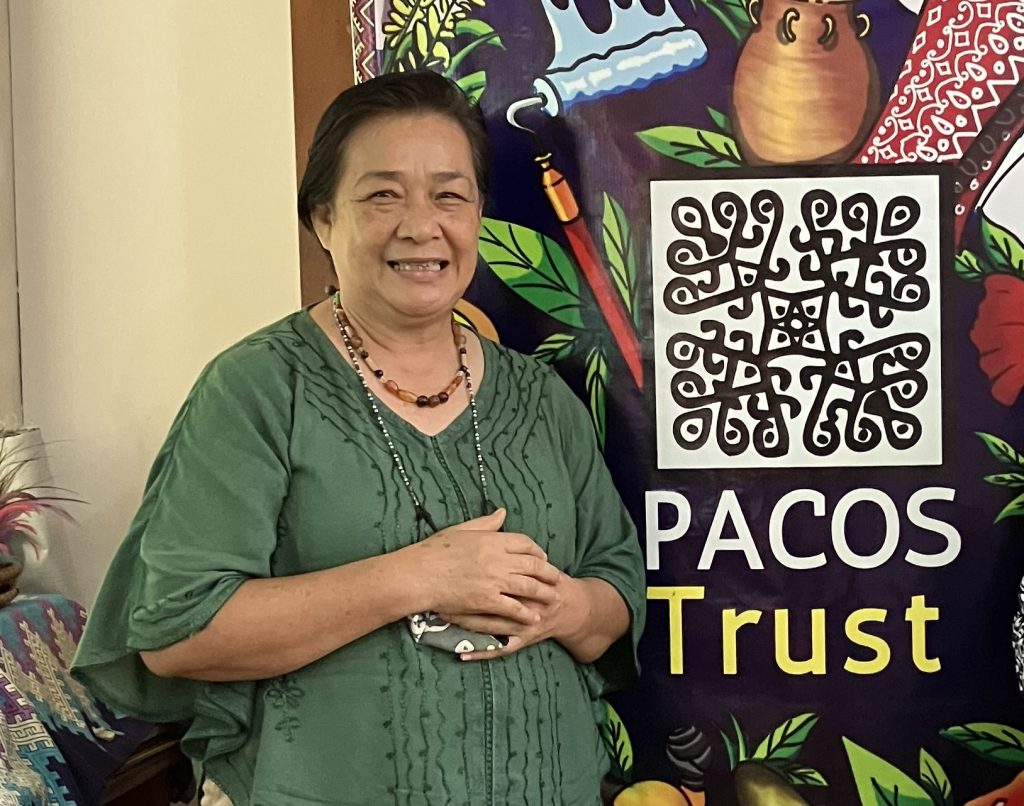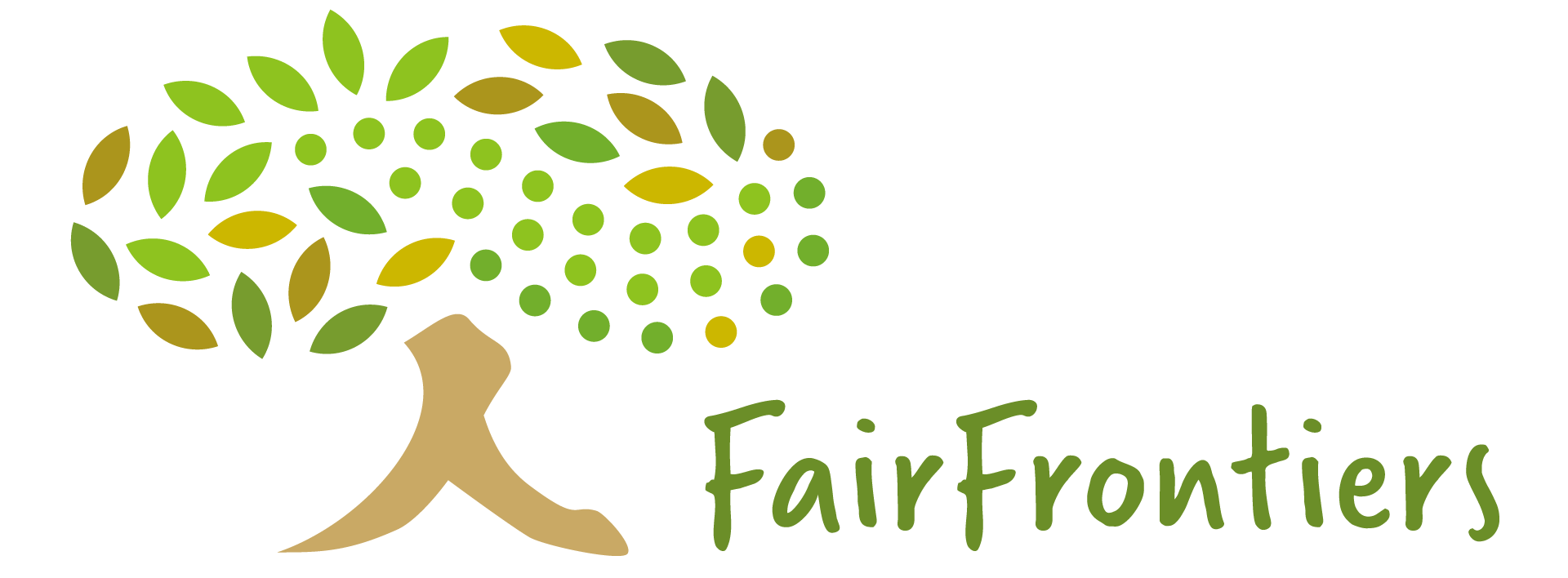Since learning about social issues as a university student, Anne Lasimbang has been involved in community organising for more than thirty years. These activities eventually led to the formation of PACOS Trust. As founder and head of PACOS Trust, Anne was invited to speak at the 2024 RIHN International Symposium to talk about the organisation’s involvement with indigenous communities in Sabah.

How did you become involved in what you are doing today?
I first started through student movements when I was in university. At university, you have the opportunity to learn about social issues and injustices, especially those in rural areas. The movement made me became more aware of issues on the ground, such as poverty.
In the 1980s, a lot of social movements was happening around the world. In South America, there was a movement for the poor, talking about ideas such as “liberation theology”. That sparked our interest. We then looked at ourselves, because we have become elites in society. After I started my career, I became involved in social activities with communities. We formed this movement gradually, so that even if we continued to work, we could contribute to the community. Back then, Pitas was reported to be one of the poorest areas in Sabah, so we did some research to look into it and address issues of poverty. That research led us to form PACOS. Back then I was a schoolteacher, teaching geography.
How do you see the frontiers? What does it mean to you?
Frontiers can mean a lot of things. Some say the “final frontiers”, meaning that after everything has been extracted, that is the last place that is well kept. For me, ‘frontiers’ always means a space. For us indigenous people, it is our territory, where communities are staying, looking after the resources around them and are surviving.
In a lot of the situations in Sabah however, those frontiers are being taken away from communities, and they are being pushed out. They are in the margin, the periphery, in a way that makes them poor. They face injustices. They have been staying in this frontier for a long time. They don’t know how to read and write, but that doesn’t mean they don’t have knowledge—they have lots of knowledge regarding their territory, but maybe they didn’t write it down, as most of the traditions and knowledge are oral.
For example, in Pitas, the Rungus community’s land was gazetted by the SAFODA plantation. They received funding from the World Bank in the 1980s, in the guise of “poverty eradication”. In the end, the project didn’t eradicate poverty, instead it made them poorer because they lost their land and rights. The sad thing was, the territory they had allocated to SAFODA became privatised, which makes it even more difficult for people to get it back. Although SAFODA says they excised the land, meaning they have put the land back to the community, those land were grabbed by people in SAFODA themselves, because they knew the land was available, whereas the local didn’t know. Again, these people were marginalised, left in the periphery. For me that is the frontiers. Frontiers is space, territory, the people within the frontiers.
What does a fair future in forest-agriculture frontiers in Sabah look like?
When we talk about fairness, we are talking about justice. Our vision is having a community that is empowered and healthy and can live a sustainable life. They can be who they are, and if they want to send their children to school, they should be able to. They should be allowed to maintain their culture, to continue to live a life that is meaningful, by practicing what they know.
They should also be able to participate in what the government is doing. There is a lot of development, but because these communities are in the margins of society, the schools are still poor. We have been working there for a long time. For example, I know a teacher in Pitas who has twin daughters near the same age as my daughter. My daughter went to secondary school in Penampang, whereas the twins went to school in Pitas. Since Pitas is far from the city, teachers don’t want to stay for long. Accessibility and facilities are different too, like internet access. Eventually though both girls did well, as one became a nurse, and one got into university. The mother of the twins is also a single mother, so it’s quite hard. No libraries, books. In those areas, girls get married early instead of going to school. So this is what PACOS does, and we hope to see communities getting equal access, know their rights, make their voices heard. We also do leadership training, so that communities know how to voice themselves.
Dignity is very important. If you can find your dignity, then whatever you become, even if you remain in the village, you can be proud—the teacher that stayed in the village eventually became a leader in the community.
How do you mediate the different voices in the community?
In the community, there are many different voices and interests. The first thing you will see is that men and women have different voices. For instance, women are interested in keeping their family, the survival of their family. Men are concerned too, but women especially in indigenous communities are concerned in terms of the children’s survival. Whereas men are more interested in big things.
In PACOS we work with many communities, and they are very diverse. Although there are some common threads, such as their connection to their land, they may have different values or cultures. The Muruk community are very patriarchal, so we face more challenges with working on women empowerment, and our approach to these issues are different compared to more matriarchal communities, where we can encourage men to support women leadership. In normal societies, it is always the men who are appointed. The diverse interests are difficult, but it is important to listen to what is important to the community. To talk, and negotiate. It’s a long process, but when you look at what the needs of the communities, like the youth, they also have different interests. They might ask for a basketball court or internet towers. Whereas for women, they want to maintain and learn knowledge or skills. Men might want more roads, or cash crop. You also have to talk to policymakers. We also need to know the community representatives, and talk to those in the government, and inform them what the community’s needs are.
How do you feel about the pace at which private sectors are moving quickly for land?
Nowadays, those who hold the power are the companies. Their control is not just the industry or other parts of the country, but also the government. That is our challenge. In terms of research and community work, our pace is slow because we need to carry out FPIC and community involvement to ensure everyone understands, and those take time. But for companies, they want things now, because for them time is money. It is frustrating, but we must not give up hope.
Another strategy we have is to work with universities. Our students might graduate, eventually work for those companies. But by making students involved in our work, so that later when work for companies as managers or high-position jobs, they remember these issues.
We are also involved in international lobbying, talking about “business and human rights”. It is not easy, but we believe that we must try talk to big companies, mines, dams. They need to care not just about profit, but the earth and people. They need to have that in their ethos of working.
Based on our experience from working over 30 years in Malaysia, working under an oppressive government, we know we have to work with many people, including students.
What kind of data would be useful for PACOS?
Recording the knowledge that the communities have and highlighting that knowledge. Using the research results to show what is happening in these communities.
At the district office, people think rural communities are stupid or have no knowledge. They make decisions in the office on behalf of the communities. We need to highlight that communities do have knowledge and present it to them. Another challenge that researchers can address is how to extract the research and present it, make exhibitions, publish it, and share it back to the community. By sharing it with them the results, it gives them pride, that sense of dignity that I was talking about.
Interviewed by: Ayami Kan
